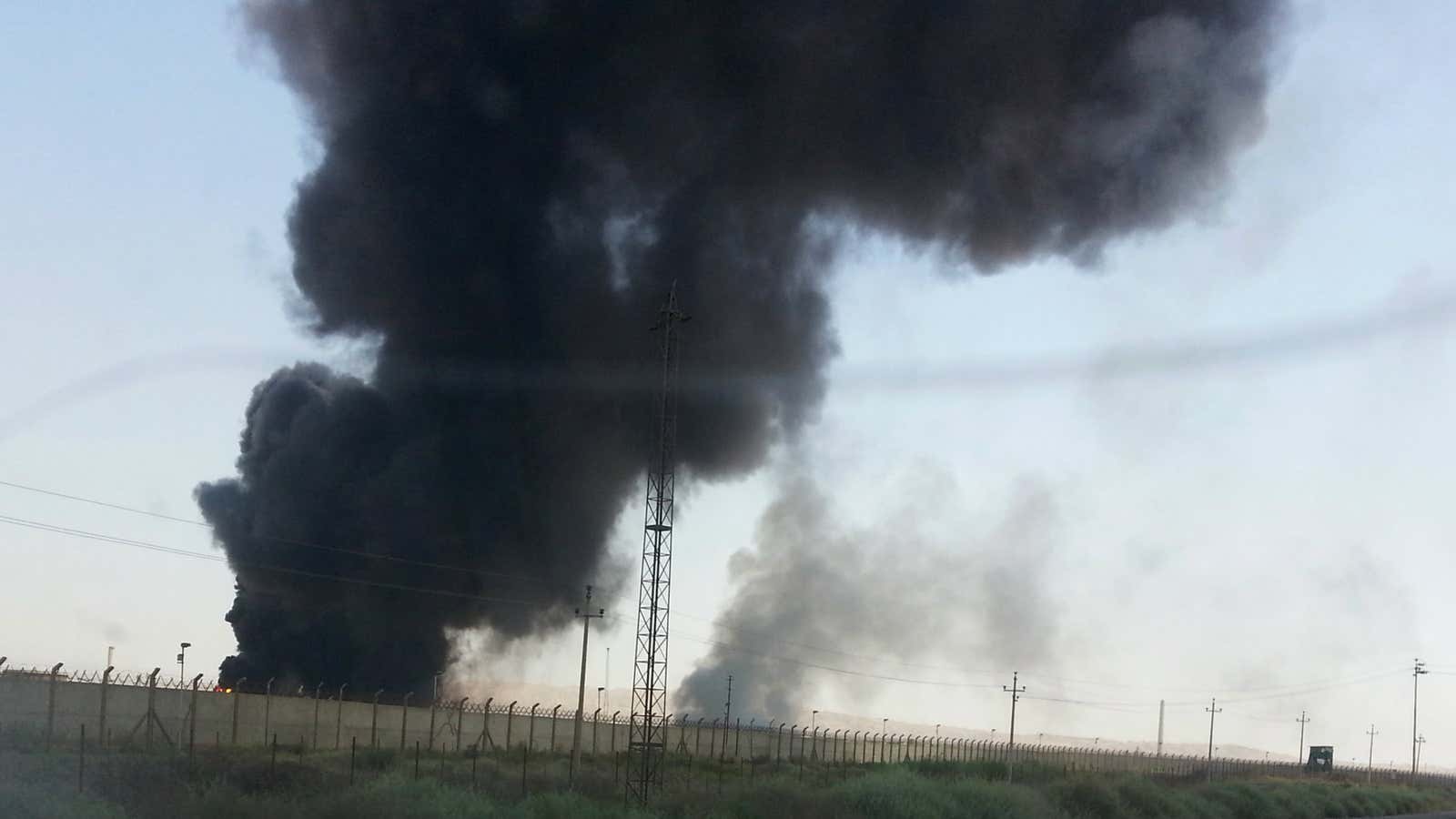This post has been updated.
The Obama Administration has taken a bold step toward loosening the grip of tense geopolitics on oil prices, reports the Wall Street Journal (paywall), giving the first permission in four decades for the export of unrefined American oil. The decision—not made public but announced in the form of private letters from the US Commerce Department to two oil companies, according to the paper–seems certain to cause a stir in global oil markets and perhaps send prices lower.
Global oil prices have surged because of the political turmoil in the Middle East and Africa–the march of Islamic militants in Iraq, the stoppage of oil exports from Libya, and the broad turbulence in Nigeria. In all, the politics there and elsewhere have taken some 3.5 million barrels a day of oil production capacity off the market, out of the 90 million barrels a day consumed globally.
The US decision allows two Texas companies—Pioneer Natural Resources and Enterprise Products Partners—to export a form of extremely light oil called condensate. The Journal’s report does not provide the volume. US condensate production in 2012, the last year provided by the US Energy Information Administration (EIA), was about 250,000 barrels a day. That is not much, relatively speaking, but the exports could have a dramatic impact if the Commerce Department provides a broader definition of what counts as condensate for export purposes.
That is because a problem with the US’s recent shale oil boom is that the type of crude being produced is extremely light—not, for the most part, as light as condensate, but too light for most American refineries to process. So producers have been worried what they will do once they saturate the refineries that can handle their light oil. As of now, they produce about 3 million barrels of light oil per day. If much of that volume were shipped abroad—which it could be if the Commerce Department allows it to be classified as condensate—it would surpass the exports of Iraq and, depending on other supply outages caused by geopolitics, seriously undermine global oil prices.
“This may be just a half-step (though a positive one for energy security and continued oil production growth),” Jamie Webster, an analyst with IHS, told Quartz in an email. “We need more information on how they are defining condensate as this ruling could cause unintended effects, leaving the full benefits for the economy incomplete.” Nonetheless, the markets are reacting positively: US crude oil futures were up in reaction to the report.
Update: Two sources with knowledge of the Administration’s thinking tell Quartz that there is a nuance in the news: early indications of what the US Commerce Department’s decision does are that it expands and loosens the definition of what constitutes “refined” condensate. This would be an important step because refined exports are permitted. So that if the Administration has allowed the two producers to subject their condensate to only minor processing before qualifying for export–basically giving it a stir and sending it on its way–that could later have the outsized market impact described above. It also would provide political cover–the Administration would somewhat satisfy a US oil industry clamor for exports while also having plausible deniability that it opened the taps.
